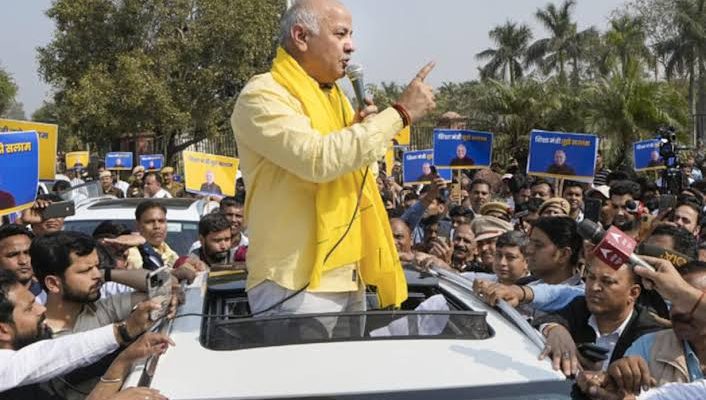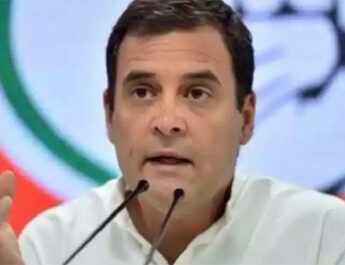From Our Bureau
NEW DELHI: The Supreme Court on Tuesday refused to entertain Delhi’s deputy chief minister Manish Sisodia’s plea against the CBI arrest on Sunday in the liquor scam of Delhi government, telling him to go to the High Court for bail.
Chief Justice of India D Y Chandrachud was reluctant to hear the case as he told senior advocate Abhishek Manu Singhvi at the outset on mentioning the case that Sisodia had alternative remedies instead of directly invoking the jurisdiction of the Apex Court under Article 32 of the Constitution.
The Bench comprising the CJI and Justice P S Narasimha refused to grant any relief to Sisodia. It was, however, not impressed when Singhvi said most of the work of Delhi government will come to a standstill since Sisodia holds 18 portfolios as a minister.
When Singhvi pressed on the issue saying that there were 32 different instances where the Top Court had heard such a case, the CJI agreed to hear it on Thursday at 3.50 PM, after the Constitution Bench sitting in the Shiv Sena matter.
CJI also pointed out that the Court interfered last week in Pawan Khera’s case as there was a prayer to consolidate FIRs filed in multiple states.
On Monday, a Delhi Court had remanded Sisodia to CBI’s custody till March 4. Special CBI Judge MK Nagpal had allowed CBI’s request after Sisodia was arrested on Sunday after an interrogation of more than 8 hours.
Singhvi referred to the cases of Arnab Goswami and Vinod Dua to say that Article 32 can be invoked for bail in exceptional circumstances. CJI replied
that Goswami’s case had come after the High Court and that of Vinod Dua related to FIRs against a journalist making critical reports, while Sisodia’s case is one under the Prevention of Corruption Act.
Singhvi also relied on the order in Jagisha Arora case where the Court allowed bail to journalist Prashant Kanojia in a writ petition filed against a
remand order. In the present case, he argued that the remand is not at all warranted as the offence is punishable with less than seven years and there is no flight risk as he has complied with all summons.
“How can you arrest when he has appeared on all occasions? Where is the flight risk?”, he asked. Singhvi said that the remand is sought on the ground
that he is not cooperating. Does cooperation means that one should waive the right against self-incrimination, Singhvi asked.
When the CJI asked why can’t these arguments be raised before the Delhi High Court, Singhvi replied that the roster judge of the Delhi High Court is not holding sittings most days as he is involved with the work as UAPA Tribunal in the PFI case. However, the bench was unmoved by the submission.




